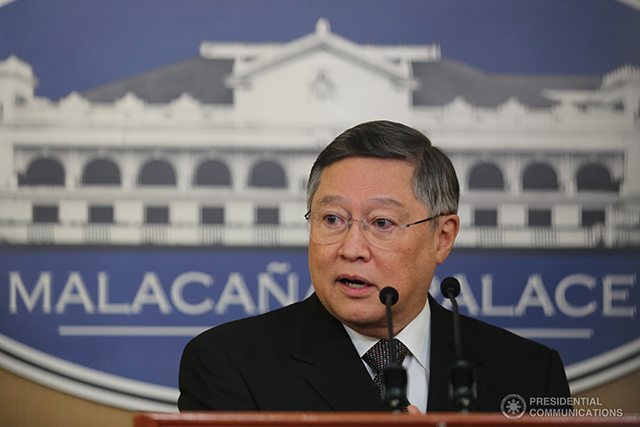
CLARK FREEPORT ZONE, Pampanga — Finance Secretary Carlos Dominguez III said the Tax Reform for Acceleration and Inclusion (TRAIN) Law is addressing the country’s challenges in human capital development.
In a press conference Friday, Dominguez said the government is aware that the skill level of the country’s workforce needs improvement.
A previous study of the International Labor Organization (ILO) and the Asian Development Bank (ADB) said the number of workers living on USD2-per-day increased to 13 million in 2009 from 11.2 million in 1991 due to inequality.
“TRAIN-1 is being invested in social services, which include better education,” said Dominguez.
“The President has announced and approved legislation where college education is free. That’s the way we are moving our workforce to a higher level, providing education and training,” he added.
Under the first package of the TRAIN Law, the government shifts the tax burden from the bottom 99 percent of the community to the country’s wealthiest one-percent population by cutting personal income taxes, expanding value-added taxes, increasing excise taxes on oil products automotive vehicles, and imposing sugar-sweetened beverage taxes.
As the government increases its tax collections due to the new tax regime, these will be invested to social services such as education and health services that will enhance human capital development.